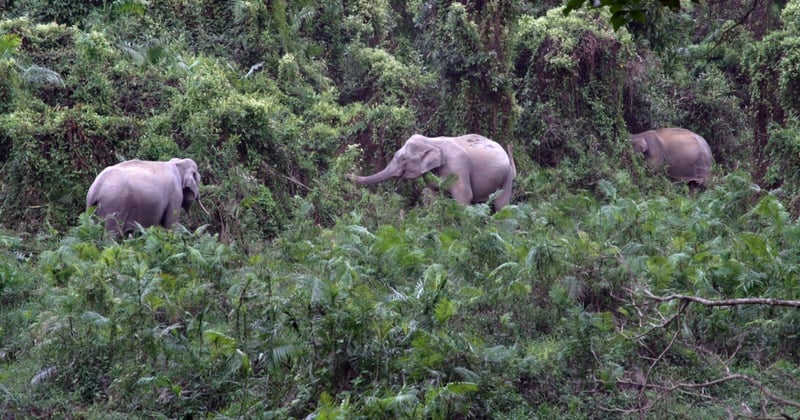
Bill S-15: An important step in addressing captive wildlife problems in Canada
News
Canada's new proposed legislation to protect elephants and great apes underscores that their captivity is only acceptable for legitimate conservation reasons or when it is in the individual animal's best interest.
Marking another milestone for animal welfare in Canada, the Canadian government has introduced a new bill aimed at safeguarding elephants and great apes. Bill S-15 builds upon the foundations of Bill S-203 (ending cetacean captivity for entertainment). It will also build on the work that has already been done around Bill S-241, the Jane Goodall Bill. That bill was withdrawn in February 2024 by policy makers – a tough decision, but it frees up the way for Bill S-15, which has a higher likelihood of passing.
Bill S-15 was introduced in the Senate on November 21st, 2023, by Government Representative Senator Marc Gold on behalf of the Minister of Environment, Steven Guilbeault, and is an Act to amend the Criminal Code and the Wild Animal and Plant Protection and Regulation of International and Interprovincial Trade Act.
What would Bill S-15 do?
If passed, the Bill S-15 would ban the commercial trade of elephants and great apes and their use for entertainment purposes. Additionally, captive wildlife facilities will require a permit to keep these species which they can only do when it’s in the best interest of an individual animal or for conservation or research purposes.
While this bill only addresses protections for elephants and great apes, it is still a very important step forward. If passed, Canada would be the first country in the world to enact such laws at a national level.
Protections still needed for more species
World Animal Protection research found more than 1.4 million wild animals are kept as pets in Canadian households, and Canada continues to import hundreds of thousands of wild animals every year. Even when the Bill S-15 passes, there continues to be significant issues around captive wildlife in Canada, including the private keeping of big cats, which requires both federal and provincial government action to address.
In the United States, the Big Cat Safety Act prevents the keeping of big cats for private ownership and for the use of these animals for entertainment purposes. We believe that big cats would make an excellent candidate to include in the bill because it would protect big cats that are bred and traded for the pet industry and for underregulated substandard zoos (also known as roadside zoos) in Canada.
In the summer of 2023, World Animal Protection Canada, joined by the Toronto Zoo, revealed a report card of Canada’s zoo regulations, highlighting Ontario’s weak and non-existent regulations and enforcement when it comes to the use of wild animals for public display.
Ontario has the largest number of roadside zoos in Canada, and yet, no tracking of how many of these facilities exist or the types of animals they house. This is despite thousands of wild, and extremely dangerous animals, being kept in these facilities for entertainment purposes in conditions that often put the animals and the public at risk.
Across all levels of government, World Animal Protection has been advocating for decades for changes to captive wild animal regulations. Our advocacy has convinced travel companies to stop selling wildlife entertainment attractions, and Instagram to discourage people from holding wild animals for selfies through content warnings.
This year we will continue to pressure the Ontario Government to develop zoo licensing and for the Federal government to pass Bill S-15. We will need your help to make this happen, so please stay tuned for future actions.